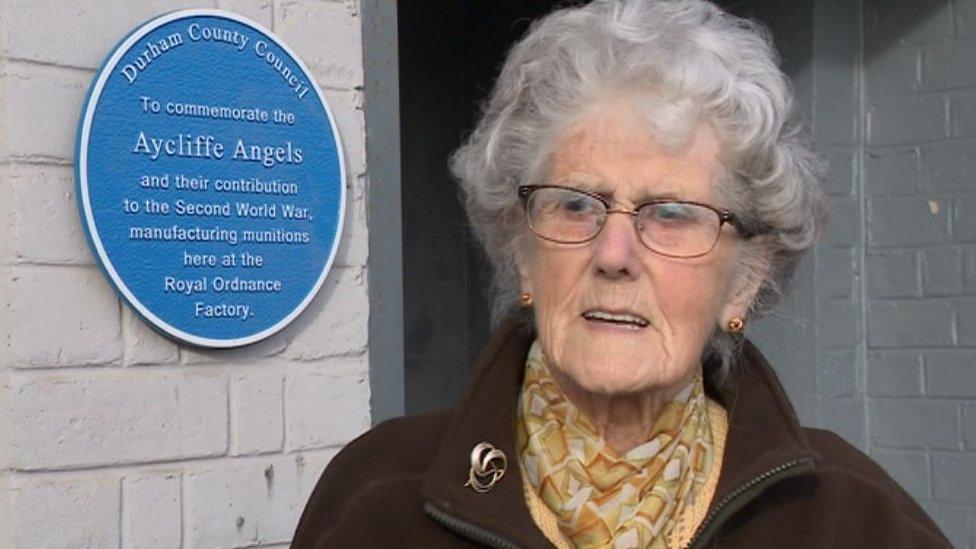Blue plaque unveiled for first Honorary Freewoman
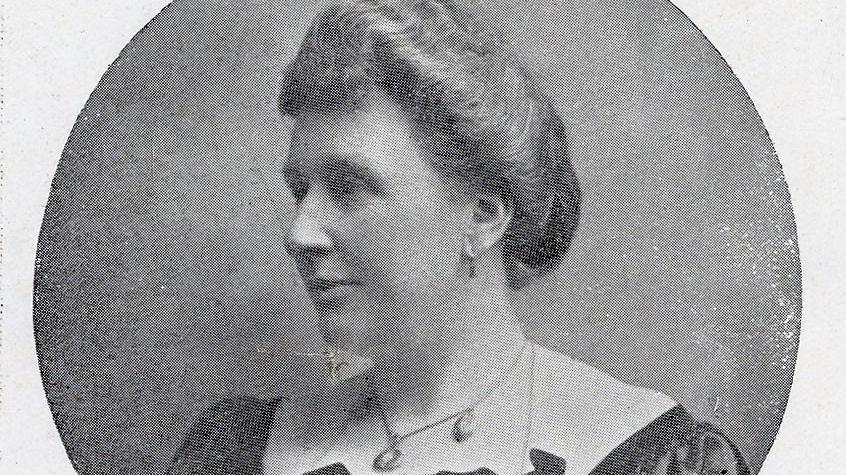
Helena Rosa Duncombe Shafto was the first Honorary Freewoman of Durham
- Published
A blue plaque has been unveiled at the house where the first Honorary Freewoman of a county lived.
Helena Rosa Duncombe Shafto OBE, who was born in 1854, was known as a trailblazer who supported prisoners of war (POWs) during World War One.
Through the Durham Light Infantry (DLI), she led a number of groups that sorted out food parcels and knitted socks for POWs, Durham County Council said.
A ceremony was held to unveil the plaque at Mrs Shafto’s former Durham City home at 9 South Bailey, which is now owned by Durham University’s St Cuthbert’s Society.
During the war, Mrs Shafto also relayed news gathered from POW letters and escapees to their loved ones.
She had been inspired to take on the work after both her sons were killed in action, external, the local authority said.
In honour of her work she was made the Honorary Freewoman of Durham in June 1919, and was later appointed an OBE.
Following her death in 1938, Mrs Shafto's obituary in the Durham Light Infantry Journal stated: "No one could have done more for the regiment than she did."
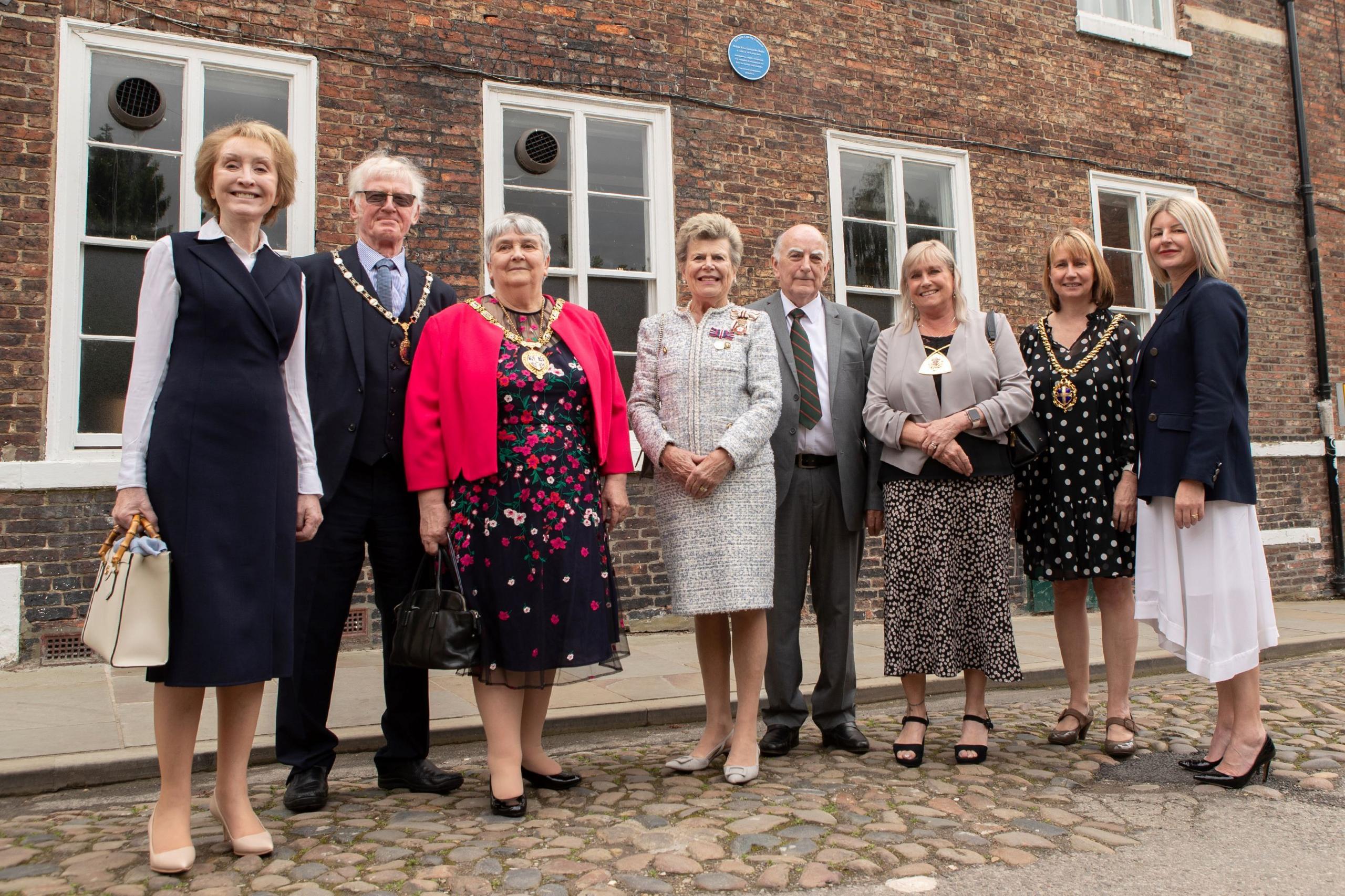
A ceremony was held to unveil the blue plaque at Mrs Shafto's former home
At the plaque's unveiling, chair of the county council, Joan Nicholson, said: "Blue plaques are a world-renowned feature and commemorate notable people and their accomplishments by marking the places where they lived and worked.
"Mrs Shafto was a trailblazer of her time."
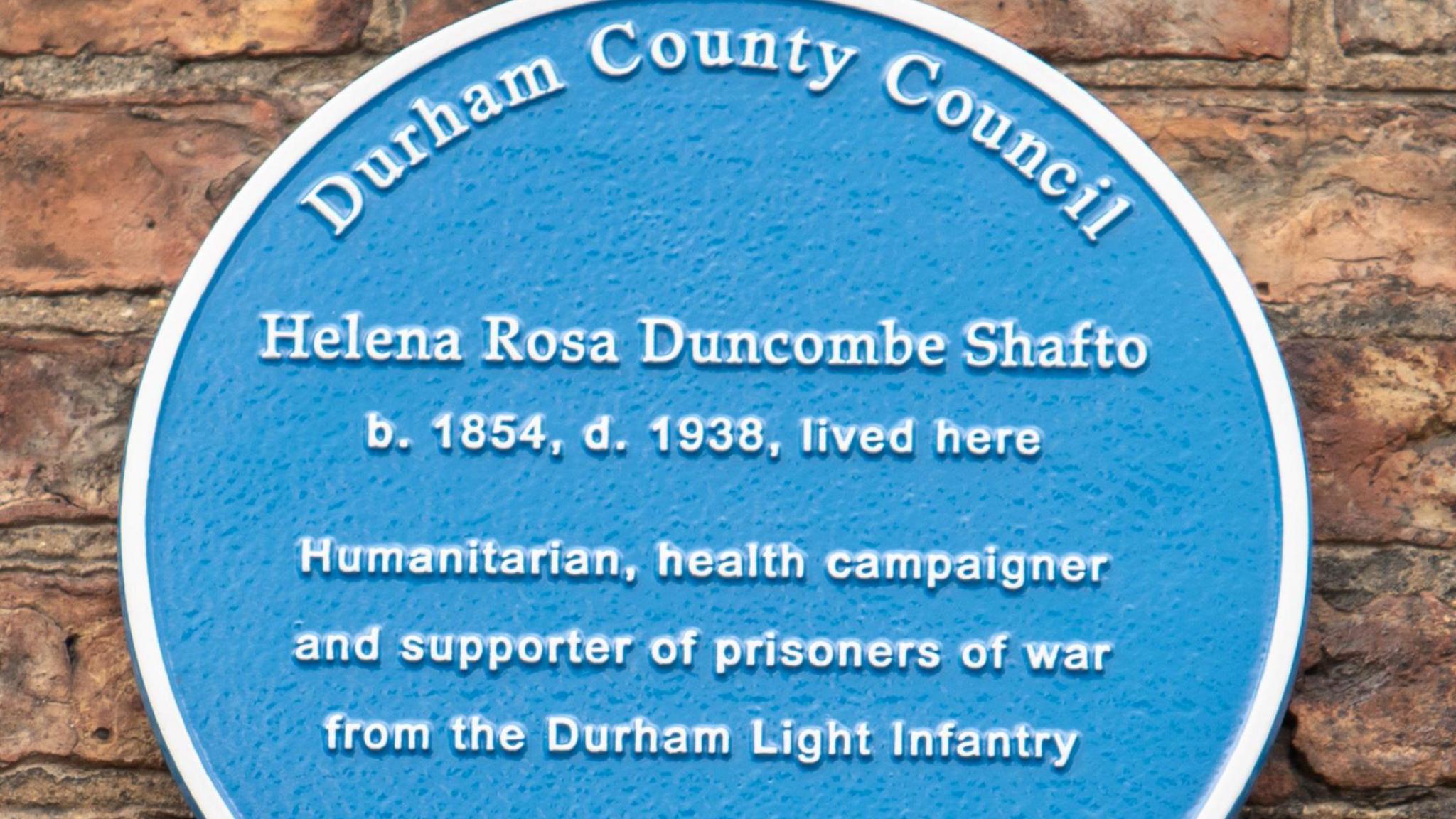
Mrs Shafto's family said they were "delighted" she was being recognised
Jane Shafto, representing the family, said: "We are delighted that Helena's charity work, which was of such significance to prisoners of war abroad and the local community in Durham, is being recognised with a blue plaque and we hope her endeavours serve to inspire future generations."
Follow BBC North East on X (formerly Twitter), external, Facebook, external and Instagram, external. Send your story ideas to northeastandcumbria@bbc.co.uk
Related topics
More stories like this
- Published8 June 2024
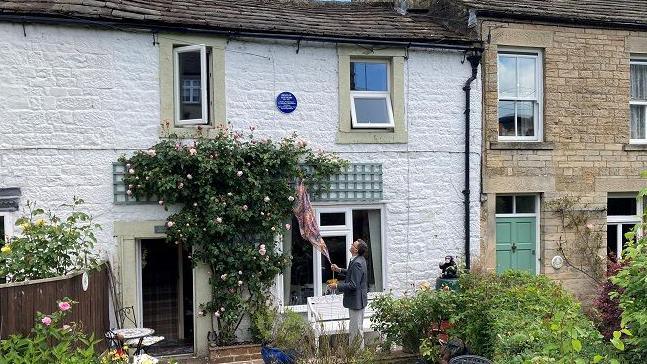
- Published19 February 2024
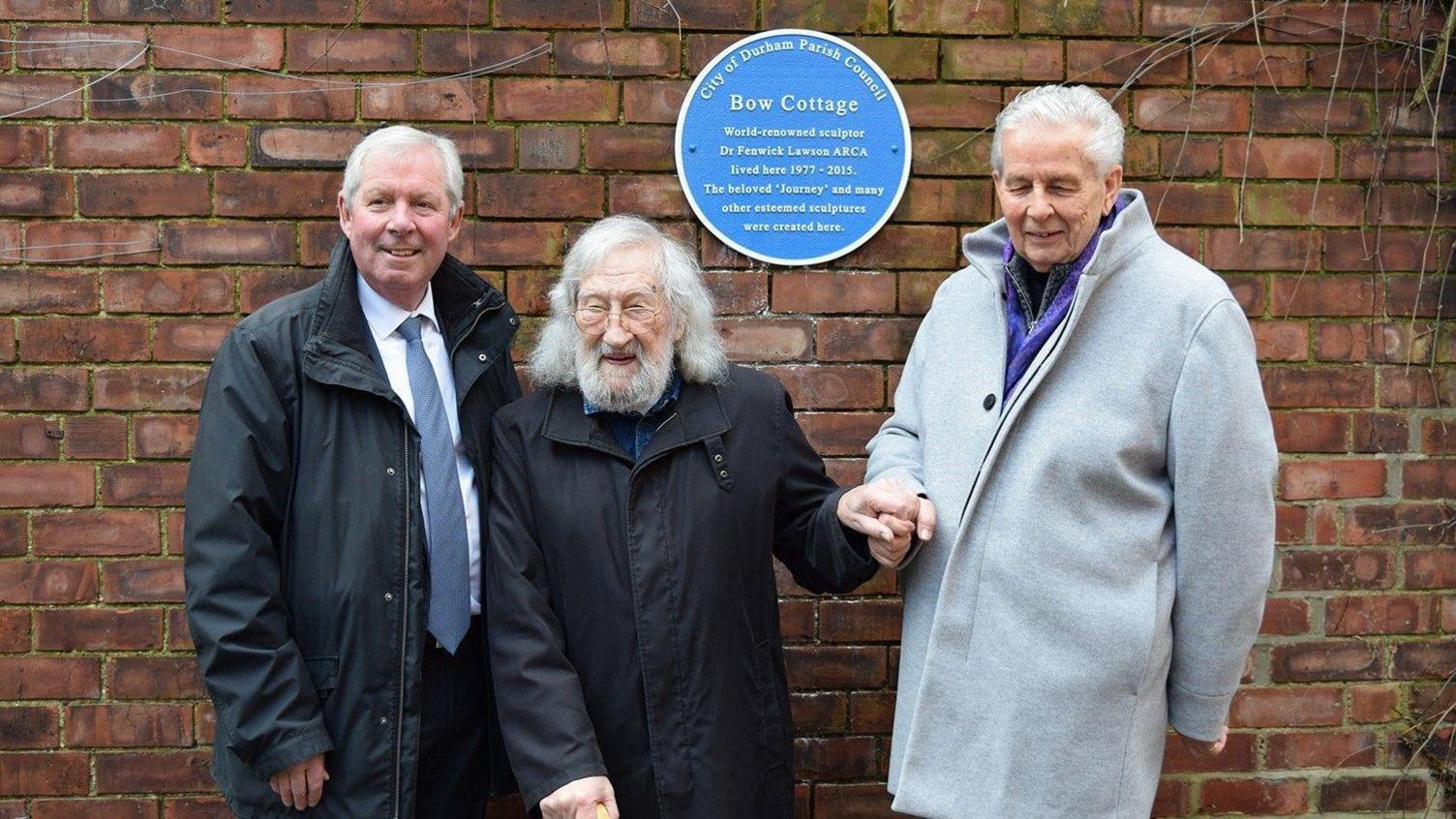
- Published24 October 2021
